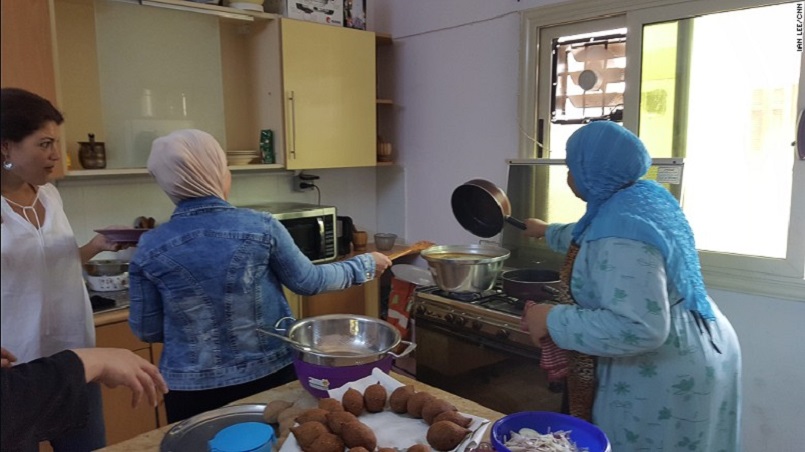
Lina Kassah's kitchen in Damascus was always busy.
Her family encouraged her, urging her to open a restaurant and share her culinary prowess.
But in 2011, everything changed. War ripped apart Syria and one day Kassah and her husband were forced to make a tough decision.
"We left Syria because our house was destroyed and there was no school for my children," says the mother of three.
Keeping culture alive
Today, Kassah is back in the kitchen alongside six other Syrian refugees, working for catering service Zeit Zeitoun, olive oil in Arabic.
Wafting aromas of home fill the community center in the Cairo suburb of El Obour as the women take turns stirring a large container of lentil stew, adding copious amounts of sugar and pomegranate molasses.
They disagree over the origin of the dish's name: harra esbae'o, or "he burned his finger."
Most hold that the continuous stirring the recipe requires will eventually burn the fingers holding the spoon, but Tamara Al-Rifai, who founded the business, interjects with a more colorful story: the husband of the woman who invented the recipe couldn't wait and dipped his finger in the stew to taste as it was still boiling.
"Cooking revives the Syrian cultural heritage by making Syrian food constantly available to people," says Kassah, who now leads the kitchen.
"We preserve the heritage of our families and ancestors."
Culinary disputes
Every woman has brought her recipes and signature dish. They put them together in a simple menu grounded in popular foods: kebba, a meat croquette; stuffed grape leaves; and sambosek, a pastry filled with cheese.
They are working on standardizing their recipes and portions while gradually adding more Syrian influences.
As they caramelize onions and season sauces, they jokingly argue over whose food is better, the Damascenes' or the minority from Aleppo and Homs.
